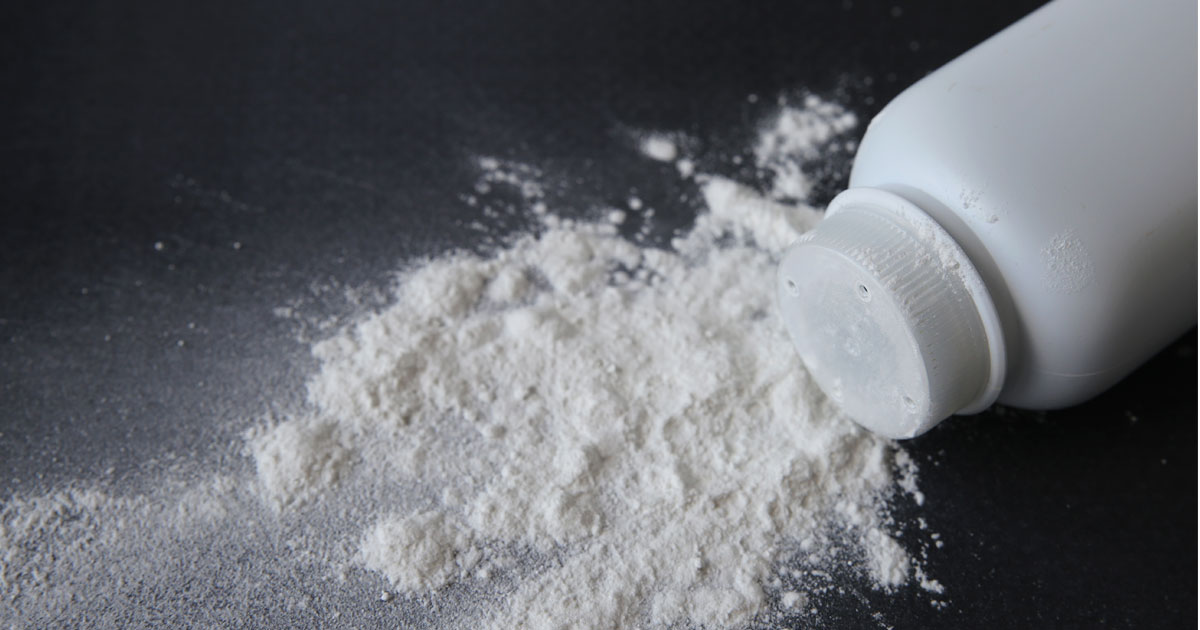MENU
- Home
- Overview
- Attorneys
- Practice Areas
- Firm News
- Blog
- Contact

Asbestos related illnesses are a driving concern, in early February 2020, the FDA held a panel that discussed the rising concern about asbestos in talcum powder and cosmetics that are created with talc. The public conversation centered on ways to reduce unintended consumer exposure to asbestos by improving safety measures during the manufacturing process. Although regulations already exist to stop asbestos from getting into talc, recent concerns about tainted Johnson & Johnson talc have created widespread concern over the topic.
Once used in many industries, asbestos consists of a naturally occurring mineral that has heat-resistant properties. For this reason, it was traditionally used to make items with these characteristics, like building insulations. However, asbestos fibers can be breathed in when they are released into the air, causing damage to the lungs. Once in the body, asbestos fibers can compromise lung capacity and can lead to respiratory and systemic diseases, including asbestosis, pleurisy, mesothelioma, and lung cancer.
Much like asbestos, talc is also a mineral found in the ground. When crushed and processed, talc makes an excellent liquid absorber. Many cosmetics and toiletry items rely on talc to reduce body and face shine and oil, as well as lessen unwanted moisture levels and some odors. Cross-contamination between talc and traces of asbestos, which may exist in the same places and be mined concurrently, has become a growing worry among talc users and safety organizations.
With all the concerns about talc, the testing methods used by talc-producing companies remains relatively unregulated. Most businesses that sell talc-related products police themselves, meaning the standards for examining the purity of the talc wavers. Proponents of more consistent talc testing methodologies argue that the only way to keep talc free from asbestos is with heavier regulatory guidelines.
At least one agency that promotes safety in consumer products has suggested that all items containing talc should contain a buyer warning about the potential presence of asbestos. Such warning labels are not unheard of, and proponents believe they help buyers stay informed before they use merchandise. In the meantime, no specific measures have been undertaken as a result of the February FDA forum.
Already, many lawsuits have been filed against Johnson & Johnson and other companies that produce goods containing talc, including baby powder, personal hygiene body powder, and makeup.
In each lawsuit, the plaintiff alleges that the use of contaminated talc led to cancer. Defendants have publicly claimed that the allegations are unfounded. Nevertheless, a 2018 report showed that Johnson & Johnson knew its talc occasionally contained amounts of asbestos and did nothing to stop the batches of contaminated talc from hitting retail shelves.
Other talc-related lawsuits are being brought forth in the courts. Personal injury lawyers across the country are watching the results carefully on behalf of future clients. Already, several cases have settled for various amounts. Consumers who have been diagnosed with lung cancer and used talc or talc-based cosmetics, may want to contact attorneys to discuss options.
If you are regularly exposed to talc and suffer an illness, you may be eligible for compensation. Asbestos testing in talc products needs to be improved in order to protect those who are consistently exposed to talcum powder. Our experienced Wilmington asbestos lawyers at Jacobs & Crumplar, P.A. will evaluate your case and determine if you qualify for compensation. Contact us online or call us at 302-656-5445 for a free consultation. Located in Wilmington and Millsboro, New Jersey, we also serve clients in Dover, New Castle County, and Sussex County.